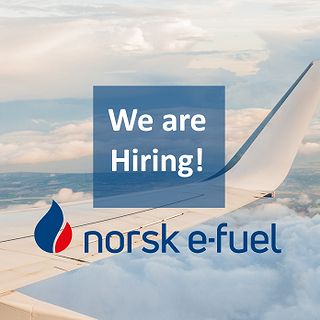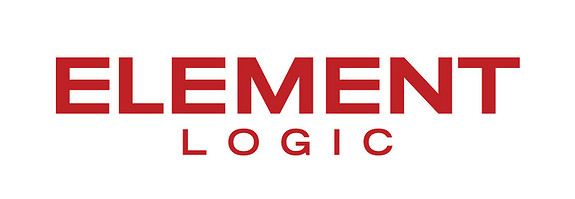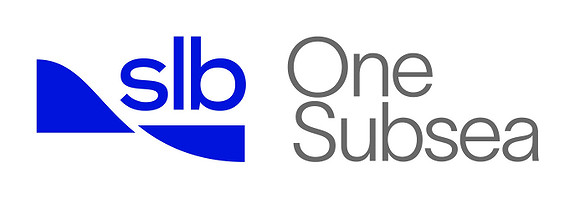
MSCA Postdoctoral Fellowship 2025 – Transformation of journalism
- Arbeidsgiver
- OsloMet - storbyuniversitetet
- Frist
- 31.01.2025
Beskrivelse
Oslo Metropolitan University is Norway's third largest university with almost 22,000 students and over 2,500 employees. We have campuses in central Oslo and at Romerike. OsloMet educates students and conducts research that contributes to the sustainability of the Norwegian welfare state and the metropolitan region.
Faculty of Social Sciences offers study programmes within archivistics, library and information science, journalism and media studies, social work, social policy and child welfare, public management and business.
The faculty has about 4200 students and nearly 280 members of staff.
The Department of Journalism and Media Studies has approximately 450 students and 30 employees. Study programmes and research are closely connected and exhibit our international profile.
Call for Expression of Interest for a joint application development under the EU Marie Skłodowska-Curie Action European Postdoctoral FellowshipOsloMet invites interested researchers of any nationality, fulfilling the eligibility requirements for the fellowship, to express their interest in developing an application for a two-year project at OsloMet, funded by the Marie Skłodowska Curie European Postdoctoral Fellowship 2025 (Call: HORIZON-MSCA-2025-PF-01-01)
Oslo Metropolitan University - Externally funded research projectOsloMet - Oslo Metropolitan University is Norway’s third largest university, with nearly 23,000 students, and more than 2,500 employees from over 60 nationalities. OsloMet has a dynamic stimulating research-intensive academic environment and an attractive employment framework. OsloMet is a diverse and urban university with an international profile; its main campus is in the city center, providing a vibrant setting to study, conduct research, and work.
Department of Journalism and Media StudiesThe Department of Journalism and Media Studies is located at The Faculty of Social Sciences and educates professionals in journalism, photojournalism and media and communication through three bachelor programmes and one master programme. The study programmes are closely connected with the department’s research activities, which are internationally oriented and conducts high-impact research on a broad range of topics within national, European, and international journalism, including issues such as fake news, media, war and conflicts, digital journalism, journalism and media innovations and journalism and education, environment and society, and individual exposure in journalism.
Area of research for the project proposalThis call invites proposals exploring the transformation of journalism, emphasizing interdisciplinary and cooperative innovations in journalistic production and dissemination. As democracy faces mounting challenges in a precarious global context, and with a growing number of journalists losing their lives in the line of duty or being jailed, harassed or silenced in other ways, this initiative seeks candidates committed to investigating alternative collaborations and co-productions between journalism and interdisciplinary partners, with a particular focus on emerging technologies such as artificial intelligence (AI).
Successful applicants will collaborate with the department’s newly established research group, Transform, while also having opportunities to contribute to other research groups within the department and OsloMet at large, including the research group on Product Design and Cultural Sustainability, led by Professor Arild Berg, which focuses on transmedia storytelling and multimodality. The Transform research group engages in cutting-edge research addressing journalism and media engagement and operates across disciplines such as art, communication, drama, media production, product development, social anthropology, human geography, and other humanities fields.
We are seeking applicants eager to investigate the dynamic interplay between journalism and new technologies like AI, alongside exploring interdisciplinary and co-production methodologies in journalism and media education.
Fellowship scope
The project will address critical challenges at the intersection of AI, journalism, media education, and interdisciplinary research, including but not limited to:
- Journalism and Media and co-production: Exploring collaborations with new actors, focusing on AI and emerging digital technologies, particularly during times of crisis or war.
- AI-driven transformation of journalism and media in relation to interdisciplinary actors with a focus on new impact.
- Bias and transparency: Investigating issues of bias and transparency within the context of AI and journalism and media in an interdisciplinary context.
- Innovative research methodologies: Applying approaches such as ethnographic studies, social anthropology, or action research to AI-driven changes in journalism and media production.
These topics are indicative rather than exhaustive, welcoming diverse approaches that align with the overarching themes of the call.
This is an exceptional opportunity to engage with a vibrant academic environment while contributing to transformative research at the nexus of journalism, technology, and society.
Supervision and supportSuccessful candidates will be supervised by Professor Maria Konow-Lund. The supervisor will provide guidance and support in developing the MSCA project together with the research support staff.
For insights into AI and the interdisciplinary aspects of the transformation of journalism and media, the candidate will be co-supervised by AI experts Professor Michael Riegler or Associate Professor Hårek Haugerud as secondary supervisors.
Starting date of the fellowshipEvaluation results for the MSCA-PF-2025 applications are communicated by the EU Commission in February 2026. Successful applicants can start the fellowship earliest in April 2026, given that they can move to Norway at that time, and no later than winter 2026.
Expected qualification of applicantsEligibility requirements:
- The applicant should have a PhD degree in Journalism, Media Communication, Social Sciences, Humanities or related fields by the end of June 2025. PhDs with interdisciplinary focuses are encouraged to apply.
- The applicant must have a maximum of eight years of research experience, from the date of the award of their PhD degree. Experience outside research and career breaks will not count towards the above maximum, nor will experience in research in third countries, for nationals or long-term residents of EU Member States or Horizon Europe Associated Countries who wish to reintegrate to Europe.
- The applicant must not have resided or carried out their main activity (work, studies, etc.) in Norway for more than 12 months in the 36 months immediately before the call deadline, 10 September 2025
- Must be able to relocate to Norway. Teleworking will not be permitted.
We are looking for applicants who have
- a solid understanding of journalism and communication in relation to transdisciplinary, transformative research practices, community engagement etc.
- It is beneficial with understanding and a particular interest in AI concepts, technologies, and their applications within the domain
- strong methodological skills
- an excellent track record in research and publications
- commitment to develop a competitive MSCA-PF grant application an open and cooperation-oriented nature, with strong abilities for independent academic work
- excellent command / highly proficient spoken and written English
We invite experienced, curiosity-driven researchers to submit:
- CV (including research track record and list of publications)
- One-page project description outlining the project idea for the MSCA-PF grant application
These documents will serve as the basis for selecting up to two candidates with whom we will collaborate to develop competitive MSCA-PF proposals. The cooperation for proposal development will be conducted remotely, with regular communication via email and virtual meetings. Successful EU-funded applicants must relocate to work at the Department of Journalism and Media Studies at OsloMet's main campus in Oslo.
Assessment and selection of candidatesApplications will be evaluated based on qualifications and project ideas.
Shortlisted candidates will be invited for a virtual interview. Up to two candidates will be invited to develop the full MSCA-PF application with OsloMet’s support.
Candidates will be informed of the results no later than 20.04.2025.
Original qualification documents must be presented if invited for an interview. All documents, including your proposal idea, will be handled in full confidentiality and in strict compliance with GDPR regulations.
Selected candidates must participate in the virtual masterclass on MSCA-PF, a two-day workshop organised by OsloMet on 28-29 April 2025 to provide applicants with detailed information and explanation of the application template to complete their proposal in compliance with the EU Commission requirements.
Employment at OsloMetSuccessful applicants who obtain a MSCA-PF grant will be offered a position at OsloMet to be hired as researchers to implement their proposed research project.
We offer:
OsloMet assists in developing competitive MSCA Postdoctoral Fellowship proposals.
To applicants who are awarded the MSCA-PF grant, we offer:
- Work Environment: Inclusive, friendly, and flexible working conditions.
- Networking: Access to a unique academic network to pursue academic goals.
- Language Classes: Norwegian language instruction.
- Relocation Assistance: Onboarding support for relocation and related services.
Remuneration:
- Type of employment: Temporary position
- Contract type: Full time
- Gross Annual Salary: Approx. EUR 70,000 (including obligatory income tax and employer's national insurance contributions)
- Starting day of employment (expected): Flexible between April 2026 and September 2027
- Working hours: 37.5 hours/week
OsloMet has implemented the Charter for researchers and been granted the HR Excellence in Research (HRS4R) by the EU Commission and is part of the EU network for mobility of Researchers EURAXESS. OsloMet International Staff Services will assist you during your relocation to Norway and practical information about this can be found at our website Work for Us and EURAXESS Norway.
ContactMaria Konow-Lund, Professor, e-mail: mklu@oslomet.no
Hanna Karv, Head of research support, e-mail: hanna.karv@oslomet.no
OsloMet is a Charter & Code certified institution by the EU Commission holding the right to use the logo HR Excellence in Research (HRS4R). OsloMet is a member of the EURAXESS network supporting a positive work environment for researchers in motion.
OsloMet has signed The Declaration on Research Assessment (DORA). DORA recognizes the need to improve the ways in which the outputs of scholarly research are evaluated.
The engagement is to be made in accordance with the regulations in force concerning State Employees and Civil Servants, and the acts relating to Control of the Export of Strategic Goods, Services and Technology. Candidates who are seen to be in conflict with the criteria in the latter law will not be considered for the position.
Visit OsloMet at LinkedIn, Facebook, Instagram
- Sted
- 0130 Oslo
- Stillingsfunksjon
- Forskning/Stipendiat/Postdoktor, Annet, Rådgivning
- FINN-kode
- 384768023
- Sist endret
- 16. des. 2024 08:54
Mer som dette





